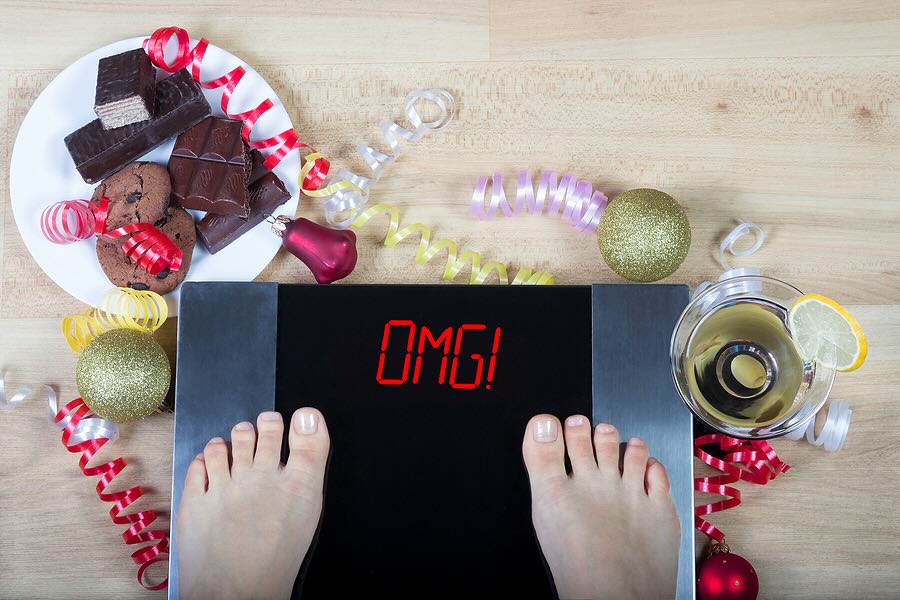Updated 3/07/2021
When I first met with Grace, she was in her mid-40s, juggling a career, family, the needs of her aging father, and helping her husband start his own business.
Finances at home were tight since he’d quit his job, putting a strain on their marriage. She was feeling low and tired all the time, so she went to her doctor for help. She left the office with a prescription for an antidepressant. Four days later, she came to the clinic with her unfilled prescription in hand and asked, “Do I really need this?”
In recent months, I’ve seen more and more women like Grace. With the stress of the pandemic, women who were already near their breaking point have been experiencing depression, anxiety, and exhaustion like never before. Their doctor’s seem to default to the same solution: antidepressants.
Even before the 2020 pandemic, antidepressant prescriptions had more than quadrupled over the past twenty years. Twice as many women as men by some estimates over 1 in 10 women in America — are taking one.
The advertisements for Prozac, Paxil, Zoloft, Wellbutrin, Celexa, Cymbalta, Effexor, and others bombard us everywhere we turn; there’s even a designer antidepressant for menopause symptoms called Pristiq, and another one for PMS symptoms called Sarafem.
Sadly, advertising doesn’t portray the full picture about these prescription drugs; all it shows are images of happy people relaxing in the sun. We all want that, right? So why not fill the prescription when your doctor offers it?
Prescriptions aren’t the only answer
While antidepressants can certainly help some women immensely, especially those with major depression, the sad truth is that, for many people, these prescriptions just aren’t very effective. And they certainly aren’t free of side effects. Like many women I see, Grace was reluctant to take a prescription drug, so she came to me for alternatives.
I always tell my patients that prescriptions aren’t the only way to navigate these difficult periods in life. There are numerous options that can help improve mood and outlook naturally. It may take some time to figure out which path is right for you, but I promise, you can feel better. If you try these options without results, antidepressants will still be there if you decide you need them.
So how can you determine whether natural alternatives can work for you? First, you have to understand your level of depression, as well as knowing the natural alternatives available.
How depressed are you?
Depression involves a range of normal negative emotions. But “clinical depression” differs significantly from minor situational depression or mood disorders, even though the symptoms can be similar – even identical at times. The difference is that in mild depression, symptoms ebb and flow, and eventually do lift, while in major depression they tend to spiral downward toward a more entrenched mental health crisis. Most forms of depression are characterized by:
- Overwhelming feelings of grief, anxiety, guilt, or despair
- A sense of numbness or hollowness
- A loss of interest or pleasure in activities that were once enjoyed, including sex
- Dullness, decreased energy, difficulty concentrating or making decisions
- Disrupted sleep patterns
- Changes in appetite, eating behaviors, and weight
If symptoms have persisted for over a month, I urge you to see a medical professional, preferably a trained psychiatrist, psychologist, or social worker, to discuss your options. Suicidal thoughts or attempts and obsessing about death are serious warning signs that need to be addressed immediately.
The depressing truth about antidepressants
Why are prescriptions often the first course of action? It’s because our medical system is broken! Most healthcare practitioners have an average of seven minutes to spend with each patient. As you can imagine, seven minutes isn’t nearly enough time to talk about a person’s emotional state. So we can’t blame conventional doctors for how over-reliant on antidepressants our society has become — they’re a “quick fix” designed to alleviate miserable symptoms. But in the end, any emotional concerns, including depression, anxiety or mood changes deserve more attention than seven minutes, and I encourage you to give yourself that attention.
Many women fill their prescriptions without a second thought, but there’s good reason to take some time with this decision. For one, antidepressants can cause several side effects, including restlessness, anxiety, sexual dysfunction, changes to appetite and weight, panic attacks, insomnia, fatigue, drug interactions and increased risk of bleeding disorders.
For more information about antidepressants and more side effects, read my article, “Common Antidepressant Medications.”
What’s more, there’s been ongoing debate for years about whether they are even effective for people with mild to moderate depression. A 2010 meta-analysis revealed minimal or nonexistent benefits as compared to placebo for mildly to moderately depressed people, although people suffering from severe depression showed more substantial benefit.
Aside from their short-term side effects, antidepressants can alter the biochemistry of the brain. This can make it very difficult to discontinue use. I have had several patients who wanted to stop taking antidepressants but experienced disruptions in sleep, digestion, and neurological symptoms like tics, tingling, and “zapping” sensations in their brains every time they tried to taper off the drugs. One serious difficulty, called serotonin syndrome, can arise when there is excess serotonergic activity in the nervous system; while rare, it is growing more common and, unfortunately, is often misdiagnosed.
Down to the roots — a new view of depression
One of the first questions I ask when talking to women about depression is, “Does your depression make sense?” In other words, what’s going on in your life, and in your physiology, that could be contributing to these feelings? If we can find the root cause of depression, women can often feel much better without having to take an antidepressant.
Many forms of depression are natural, normal, and temporary. In fact, some researchers believe that depression may serve an evolutionary purpose as an adaptive response to affliction, and that pharmacological interventions may prohibit the body and mind from working through a needed struggle — much like a fever fighting off infection.
The reality is that life is full of adversity, and events we can’t control – like a global pandemic, for instance – can cause temporary depression. Women with postpartum depression, seasonal affective disorder, anxiety, and situational depression are too often embarrassed about the way they feel, and reluctant to seek help.
Too often normal dips in emotional state are perceived as the kind of depression that warrants an antidepressant. The following situations may cause you to develop symptoms of situational depression, but won’t necessarily lead to a more serious or entrenched affective disorder:
- Death of a loved one, friend, or acquaintance
- Health crises
- Financial woes
- Divorce or break-up
- Losing a job, underemployment
- Moving
- Children leaving for college
- Positive transitions laden with deep meaning, such as new jobs, weddings, births
Past experiences can impact you now
Many women are surprised when I tell them that past experiences contribute to present depression. This is where your life story intersects with your biology. What happened in your early childhood, in utero, and even sometimes before conception, through epigenetic effects, can influence your innate biochemistry and cause you to be more susceptible to depression. It’s so important to remember that if life’s unexpected left turns seem to weigh heavier on you than on others, it’s not your fault. And there are certainly things you can do to make yourself feel better.
Consider how you view your life
For women who are mildly or even moderately depressed, we can look at depression as an opportunity to change the lens through which we view our lives. Research is now telling us that our thoughts have a biochemical manifestation in the body, and vice versa. We can use this intense connection to our advantage by implementing needed change in our lives.
Don’t discount physical factors
There may also be very real physiological factors contributing to your depression. Perhaps your diet or sleep habits are off, or maybe you’re reacting to toxicity in your surroundings. Even certain forms of mold can cause some people to be depressed! Whatever the cause, it helps to step back and take a close look at your health, emotions, and environment as you examine your depression.
Diet, in particular, can make a big difference if you are deficient in specific nutrients. The following nutrient cofactors enhance neurotransmitter function and mood:
- B-complex vitamins
- Vitamin C
- Vitamin D3
- Essential fatty acids (omega-3’s)
- L-theanine (amino acid)
- Cysteine (amino acid)
- Zinc
Brain chemistry — serotonin and much more
Serotonin, the neurotransmitter we hear most about when it comes to depression, is impacted by many things. Often women with intense cravings for carbohydrates notice they feel better after eating them. This is because tryptophan, the precursor to serotonin, requires the insulin produced upon eating carbs to move it from the blood into the brain to be converted to serotonin. Studies suggest some women release more or less beta-endorphin, another feel-good neurotransmitter, after eating sweets or refined carbohydrates. But as everyone knows, a sugar high doesn’t last forever, and the crash can lead to feeling even lower, with more intense cravings — not to mention the extra weight and guilt that frequently accompany this cyclical pattern.
Our brain chemistry is also affected in powerful ways by stress levels. Today’s stressful, high-adrenaline lifestyles can increase the amount of cortisol produced in the body, which over time can lead to various forms of depression. One pathway that is often seen leading to depression looks something like this:
high adrenaline > anxiety > high cortisol > anxious depression > depression
Quieting down a major brain-hormone pathway called the hypothalamic-pituitary-adrenal (HPA) axis is an excellent place to start. Production of the stress hormones adrenaline and cortisol via this axis prevails over other hormonal pathways, “overriding” balance everywhere else. Encouraging balance begins with finding ways to reduce stress and anxiety in your life. I’ve found that women are especially vulnerable when hormones are in major flux, such as prior to periods, during pregnancy, postpartum, and around the perimenopausal transition. Some women respond well with bioidentical progesterone or phytotherapy to re-calibrate imbalances.
The vitamin D connection
Studies have shown that vitamin D supplementation can help patients with seasonal affective disorder, suggesting a connection between vitamin D and normal neurotransmitter function. Vitamin D production is also inversely correlated with melatonin, the hormone produced in the brain that influences our sleep, cravings, and moods. Sunlight turns melatonin production off, while triggering the production of vitamin D.
Paying attention to all the variables
Our brain chemistry is also strongly affected by whether we get adequate sleep, have healthy digestion, and partake in regular exercise. You may need to change many different aspects of your daily routine to find the particular combination that works for you.
Alternative Solutions for Depression
Most women I talk with — even those who are on antidepressants — have questions about their options. In my experience, an integrative approach that draws upon the full range of potential treatment methods offers better symptom resolution and long-term recovery than any one single effort.
An integrative, functional health care practitioner or counselor will fully evaluate your history and current physical functioning, then coordinate your care to meet your individual needs.
Some options to explore include:
- Talk therapy/counseling
- Body work methods: Craniosacral therapy (CST), osteopathic manipulative therapy (OMT), chiropractic, therapeutic massage
- Acupuncture, auriculotherapy
- Phytotherapy from the Western herbal compendium: St. John’s wort, passionflower, valerian; or from other ancient traditional paradigms, such as Oriental medicinal herbs
- Ayurveda, aromatherapy
- Targeted amino acid support: SAM-e , 5-hydroxytryptophan, GABA
- Nutritional supplements: Multivitamins, minerals, omega-3 fatty acids
- Full-spectrum light therapy
- Emotional Freedom Technique, the Hoffman Process or The Work by Byron Katie
Contrary to what some of the marketing campaigns for antidepressants tell us, feeling good is not just about one single molecule in the brain. From sunlight to snacking, our brain chemistry can be coaxed with our choices. There is so much you can do in your daily life to support a more positive mood, including:
- Eat a low glycemic-load, Mediterranean-style diet with adequate protein and abundant plant foods.
- Adopt a high-quality multivitamin/mineral regime, including omega-3’s (EPA and DHA).
- Have your vitamin D level tested regularly. Depending on your levels and geographic region, expose your skin safely to the sun or supplement with vitamin D accordingly.
- Go to bed by 10:00 pm and get at least 8 hours of sleep each night.
- Exercise 4–6 times a week for 30–60 minutes, preferably outdoors.
- Avoid alcohol and other recreational drugs, instead trying relaxation methods such as transcendental meditation, yoga, or qi gong.
- Talk to your practitioner about alternative therapies like those described above.
“It would be easier to roll up the entire sky into a small cloth than it would be to obtain true happiness without knowing the Self.” — The Upanishads, as translated by Maharishi Mahesh Yogi
Give yourself a lift — naturally
You may find comfort in knowing that depression, at minimum, offers us some impetus to examine and change our lives.
Give some consideration to how your circumstances may be affecting your outlook on life. Does the way you nourish yourself each day help you feel better, or could it be making things worse?
Explore your sleep patterns, your environment, the way you spend your time and with whom you spend it — and don’t be afraid to try something new.
Be kind to yourself, take some time to find what feels good and right for you, and don’t be afraid to ask for a helping hand. It may be hard to believe now, but feeling down is most likely temporary — the tincture of time may be the kindest and gentlest healer of all.
And you can rest easily, knowing that there are plenty of natural ways to support your mood and outlook along the way.
Grace worked on shifting some habits and explored other therapeutic options. When she came back for a follow up appointment, she told me she’d thrown the prescription away. She simply didn’t need it!
With some deep reflection, supportive guidance, and hope, you can feel good again — in body, mind, and spirit.







